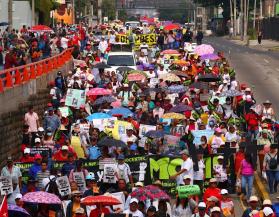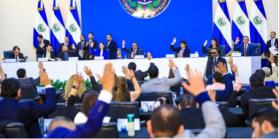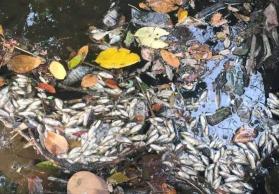Pastor and Community Leader Murdered, Social Movement Demands Justice
On Friday, November 4 Francisco Carrillo and Jesus de Carrillo, two religious leaders, human rights advocates, and activists in a local community volunteer rescue program, were shot and killed outside their church in the town of Jayaque, La Libertad. Francisco was a pastor in the Lutheran church; as he was locking up after Friday’s service, the assailants approached on bicycles and shot him and then his wife, who was waiting in a nearby car. The Carrillos were known for being vocal community activists and had recently received death threats for their work.
These murders are striking in the wake of other apparently politically motivated assassinations, raising fears of a resurgence of death squad activity in El Salvador. Not only was the couple politically active, but the assailants easily rode away on bicycles without covering their faces to try to hide their identity. Some witnesses say they were local gang members, although there is no apparent motive for the murder and there was no attempted robbery. The police have been very slow to investigate the murders, even showing up at the crime scene well after the bodies were found. There have been a number of well-publicized, similar killings in the past five months: the elderly parents of Mariposa Manzanares, a former FMLN leader, who were murdered in July; the Montoyas, another politically active couple murdered in August; and the progressive Catholic priest Antonio Romero, murdered in September.
The reactions to the murders have been of grief and anger. Lutheran Reverend Roberto Pineda, a member of the Popular Social Bloc, said in a statement the following day that “these murders are the result of the right wing’s desperation as they are faced with growing mass protest.... They are worried about the social crisis, about the erosion of their power and they want to maintain their domination through fear and terror. But we will not be scared.”
The Lutheran church and other members of the Jayaque community are calling for the National Civilian Police (PNC) and the attorney general’s office to do an immediate investigation into the case, and are also denouncing the murders to the office of the Human Rights Ombudswoman. Given the PNC’s extremely slow response to the calls for investigations into the other five murders, religious groups and BPS leaders are pushing for answers from the police investigation within two weeks.
More Criticism of Saca’s Extended Anti-Crime Plans
Meanwhile, President Tony Saca and Interior Minister Rene Figueroa continue moving forward with their numerous proposals to crack down on crime, including pushing for a U.S.-backed “anti-organized crime” law and the creation of a 14 member National Commission on Security. The proposed legislation includes things like the creation of special, secretive tribunals for “expedited” trials of those with suspected links to “organized crime.” Judges came out this week criticizing the legislation, especially the sections creating the special tribunals and expanding the criteria for admissible evidence. The latter would give legitimacy to what is being called “third-hand evidence”, such as the testimony of witnesses who claim to have overheard conversations related to the trial. Judges have also criticized Saca’s attempt to subvert the current legal system by replacing certain judges and creating harsher and more secretive court processes.
Saca continues to move forward with these ideas despite all the evidence showing that tough-on-crime policies have actually worsened the situation of crime. A recent study by the Central America Coalition for the Prevention of Youth Violence details how the three Central American nations with so-called “Mano Dura” policies – El Salvador, Guatemala, and Honduras – all have increased rates of violent crime, while Nicaragua and Costa Rica, which have both prioritized social spending, crime prevention and youth rights, are seeing much lower crime rates. El Salvador has a murder rate that is double the average for Latin America and seven times higher that of Nicaragua.
Ortega Victory gives Hope to Salvadoran Left
FMLN and social movement leaders congratulated Sandinista leader Daniel Ortega for his victory in Sunday’s Nicaraguan presidential elections, praising the Nicaraguan people for voting for a candidate who had been thoroughly demonized by the U.S. government during the lead-up to the elections. The State Department and right-wing U.S. Congressional Representatives used similar tactics as those employed in the 2004 Salvadoran elections, repeatedly denouncing Ortega and threatening to cut off USAID funding should he win. They also threatened to cut the flow of remittances, a tactic which successfully instilled fear in many Salvadoran voters. In Nicaragua, a fractured right-wing helped Ortega, but voters also chose to defy the U.S. intervention. Though many remain unsure of what direction Ortega’s social policy will go, he joins the ranks of other left-of-center presidents who have been recently elected in Latin America, breaking the conservative stranglehold on Central America’s executive branches.

 "I am a CISPES supporter because continuing to fight for social justice and a more people-centered country means continuing the dream and sacrifice of thousands of my fellow Salvadorans who died for that vision.” - Padre Carlos, New York City
"I am a CISPES supporter because continuing to fight for social justice and a more people-centered country means continuing the dream and sacrifice of thousands of my fellow Salvadorans who died for that vision.” - Padre Carlos, New York City

